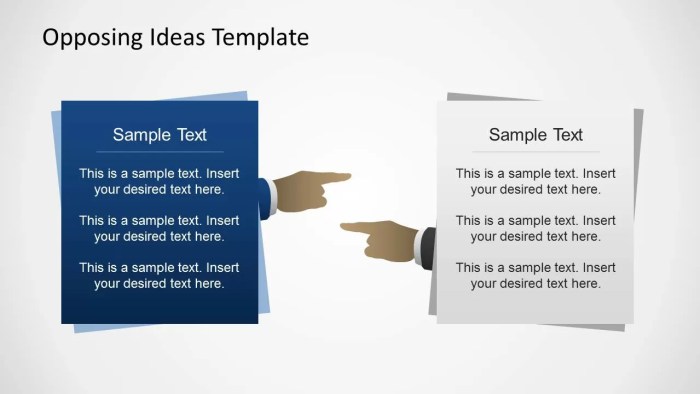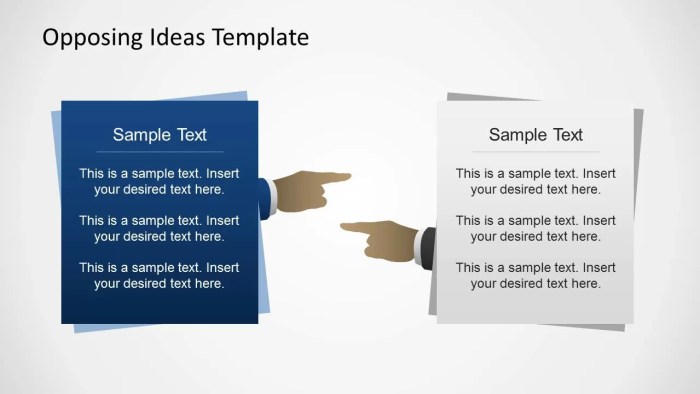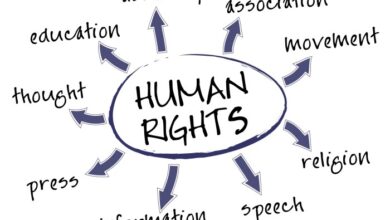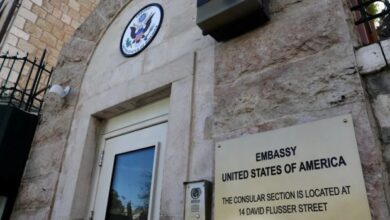
The War on Dissent Widens: A Growing Threat to Freedom
The war on dissent widens, a chilling reality that underscores the fragility of free speech and the dangers of silencing dissenting voices. Throughout history, societies have grappled with the delicate balance between order and dissent, often resorting to suppression to maintain control.
However, in the digital age, the tools and tactics used to silence dissent have become increasingly sophisticated and pervasive.
From the rise of online censorship to the use of surveillance technologies, governments and corporations are employing a range of methods to control information and suppress dissenting opinions. This trend has far-reaching consequences, threatening the very fabric of democratic societies and undermining the fundamental right to free expression.
Historical Context

The suppression of dissent is a recurring theme throughout history, with various regimes and societies employing different methods to control the flow of information and silence opposing voices. This historical overview examines periods where dissent was suppressed, explores the evolution of censorship and its impact on free speech, and provides examples of historical events where dissent was met with violence or legal persecution.
Evolution of Censorship
Censorship has evolved over time, taking on different forms and serving various purposes.
- Ancient Times:In ancient civilizations like Greece and Rome, censorship primarily focused on controlling religious and political discourse. For instance, Socrates was condemned to death for corrupting the youth and impiety, demonstrating the power of the state to silence dissenting voices.
- Medieval Era:During the Middle Ages, the Catholic Church held significant power and exercised strict censorship over religious and intellectual matters. The Church’s Index Librorum Prohibitorum, a list of banned books, exemplifies this control over information and ideas.
- The Printing Press and the Enlightenment:The invention of the printing press in the 15th century revolutionized communication and facilitated the spread of knowledge. However, this also led to increased concerns about the potential for subversive ideas. Governments and religious authorities sought to control the printing press and censor content deemed harmful or dangerous.
The Enlightenment period, with its emphasis on reason and individual liberty, saw a push for greater freedom of expression. However, censorship remained a tool for suppressing dissent and maintaining social order.
- Modern Era:In the modern era, censorship has taken on new forms, with governments and corporations utilizing technology to monitor and control information. The rise of the internet and social media has presented both opportunities and challenges for free speech. While these platforms have democratized access to information and facilitated the spread of diverse viewpoints, they have also become targets for censorship and surveillance.
Examples of Suppressed Dissent
Throughout history, numerous examples illustrate how dissent has been met with violence and legal persecution.
- The French Revolution:The French Revolution, a period of radical social and political upheaval, witnessed widespread suppression of dissent. The Reign of Terror, led by Maximilien Robespierre, saw the execution of thousands of individuals deemed enemies of the revolution.
- Nazi Germany:The Nazi regime in Germany employed systematic censorship and propaganda to control information and silence opposition. The Gestapo, the Nazi secret police, persecuted and silenced critics, including journalists, intellectuals, and political opponents.
- The Cold War:During the Cold War, both the United States and the Soviet Union engaged in propaganda campaigns and suppressed dissent within their respective spheres of influence. The US government, through its McCarthyist witch hunts, targeted suspected communists and silenced dissenting voices.
It’s chilling to see how the war on dissent widens, with voices being silenced and critical thinking being demonized. This trend is further exemplified by the recent news that the Bush terror war suffered a body blow in Spain, as seen in this article.
The backlash against the war, particularly in Europe, is a testament to the power of dissent and the need to protect freedom of expression in the face of growing authoritarianism.
The Soviet Union, through its totalitarian regime, controlled all aspects of media and information, and severely punished any form of dissent.
Modern Manifestations: The War On Dissent Widens
The war on dissent, once primarily waged through physical means, has evolved to encompass the digital realm, where technology has become both a tool for amplifying dissent and a weapon for suppressing it. This modern manifestation of the war on dissent is characterized by the use of surveillance, data collection, and sophisticated algorithms to monitor and control the flow of information, ultimately silencing dissenting voices.
The Role of Technology in Amplifying and Controlling Dissent
Technology has become a powerful tool for mobilizing and coordinating dissent. Social media platforms like Twitter, Facebook, and Instagram have provided a platform for individuals and groups to connect, share information, and organize protests. This has been particularly evident in movements like the Arab Spring, where social media played a crucial role in disseminating information and mobilizing people.
The war on dissent widens, with voices being silenced and critical thinking labeled as extremism. It’s chilling to consider the potential for this trend to escalate, mirroring the situation at Guantanamo Bay, where individuals have been held for years without trial.
The question arises, as explored in this insightful article guantanamo maybe none of them are terrorists , are we truly fighting terrorism, or are we suppressing dissent under the guise of national security?
However, the same technology that empowers dissent can also be used to control it. Governments and corporations can utilize sophisticated algorithms to identify and censor dissenting content, manipulate public opinion, and target individuals for harassment or surveillance.
Surveillance and Data Collection
The increasing use of surveillance technologies, coupled with the vast amounts of data collected by governments and corporations, has created a chilling effect on dissent. Governments have implemented widespread surveillance programs, such as the PRISM program in the United States, which collects data from major internet companies.
This data can be used to identify individuals who express dissenting views, target them for harassment or intimidation, or even arrest them. Corporations also collect vast amounts of data on individuals’ online activities, which can be used to profile their political beliefs and target them with tailored advertising or censorship.
“The Internet is the most powerful tool for freedom of speech since the printing press. But it is also a powerful tool for censorship.”
Edward Snowden
Examples of Modern Censorship
The suppression of dissent through technology is not just a theoretical concern; it is happening in real-time around the world. Here are some examples:
- In China, the government uses a sophisticated system of censorship, known as the Great Firewall, to block access to websites and information deemed politically sensitive. The government also employs a vast network of censors who monitor online content and remove any posts that criticize the government or promote dissent.
- In Russia, the government has passed laws that criminalize the spread of “fake news” and “extremism,” which have been used to silence opposition voices and critical journalists. The government has also blocked access to websites and social media platforms that it deems hostile, such as Facebook and Twitter.
It’s a chilling reality – the war on dissent widens, and it feels like we’re losing ground. The question, “Have you no sense of decency, sir?” have you no sense of decency sir , echoes through the halls of history, a reminder of the consequences of unchecked power.
This chilling question serves as a stark warning, a plea for humanity in the face of the ever-expanding war on dissent.
- In Turkey, the government has cracked down on dissent following a failed coup attempt in 2016. The government has arrested journalists, academics, and activists who have expressed dissenting views, and has also shut down media outlets and social media accounts that criticize the government.
Impacts of Suppressing Dissent

Suppressing dissent, the act of silencing opposing viewpoints and criticism, has far-reaching and detrimental consequences for democratic societies. It erodes the very foundations of freedom and human rights, leading to a decline in societal well-being and stability.
The Erosion of Democratic Values
When dissent is suppressed, it undermines the core principles of democracy, such as freedom of speech, freedom of assembly, and the right to challenge authority. These freedoms are essential for a healthy and vibrant democracy, as they allow citizens to express their opinions, hold their leaders accountable, and participate in the political process.
When these freedoms are curtailed, it creates an environment where citizens are afraid to speak out, and where dissenting voices are silenced. This can lead to a culture of fear and conformity, where citizens are less likely to engage in critical thinking and debate.
The Rise of Societal Unrest and Instability
The suppression of dissent can create a breeding ground for societal unrest and instability. When citizens feel that their voices are not being heard, and that they have no recourse to address their grievances, they may resort to more extreme measures.
This can manifest in the form of protests, riots, or even violence. History is replete with examples of societies where the suppression of dissent has led to widespread unrest and upheaval. For instance, the Arab Spring uprisings were fueled by years of suppression of dissent and frustration with authoritarian regimes.
The Decline in Freedom and Human Rights
The suppression of dissent often goes hand-in-hand with a decline in freedom and human rights. When governments are able to silence dissenting voices without consequence, they are more likely to engage in other forms of human rights abuses, such as arbitrary detention, torture, and censorship.
This creates a climate of fear and repression, where citizens are constantly living under the threat of government reprisal.
Strategies for Protecting Dissent

Protecting the right to dissent is crucial for a healthy democracy. It allows for the expression of diverse viewpoints, challenges the status quo, and ultimately leads to a more informed and just society. However, the suppression of dissent is a persistent threat, requiring individuals and organizations to actively defend this fundamental right.
Methods for Protecting Dissent, The war on dissent widens
Various strategies can be employed to protect dissent and ensure a space for diverse voices. These strategies range from individual actions to organized efforts, all aiming to safeguard the right to express dissenting opinions.
- Educate and Raise Awareness:Understanding the importance of dissent and its historical significance is paramount. Individuals can educate themselves and others about the dangers of suppressing dissent and the importance of protecting this right. This can be done through workshops, seminars, public discussions, and online platforms.
- Promote Media Literacy:Critical thinking and media literacy are essential for navigating the information landscape. Individuals should be able to identify and critically analyze biased or misleading information, which often plays a role in suppressing dissent. This can involve learning to distinguish between credible sources and propaganda, and understanding the influence of social media algorithms.
- Support Independent Journalism:Independent media plays a crucial role in holding power accountable and exposing instances of dissent suppression. Supporting independent journalists and media organizations financially and through advocacy can help ensure the continued flow of information and critical analysis.
- Document and Report Violations:When instances of dissent suppression occur, it is essential to document them and report them to relevant authorities. This can involve gathering evidence, such as videos, photographs, and witness testimonies. Organizations like Human Rights Watch and Amnesty International can provide guidance and support in documenting and reporting human rights violations.
Role of Advocacy Groups and Legal Challenges
Advocacy groups and legal challenges play a vital role in combating the suppression of dissent. These organizations work tirelessly to defend the rights of individuals and groups facing censorship, intimidation, and other forms of suppression.
- Legal Advocacy:Legal challenges are crucial in protecting dissent. Advocacy groups can file lawsuits to challenge laws or policies that restrict freedom of expression. They can also represent individuals who have been targeted for their dissenting views, ensuring their right to a fair trial and due process.
- Public Awareness Campaigns:Advocacy groups often conduct public awareness campaigns to highlight the dangers of dissent suppression and mobilize public support for protecting this right. These campaigns can involve protests, demonstrations, and media outreach.
- International Pressure:Advocacy groups can leverage international pressure to hold governments accountable for suppressing dissent. They can work with international organizations, such as the United Nations, to investigate human rights violations and advocate for change.
Methods for Protecting Dissent and Their Effectiveness
The effectiveness of different methods for protecting dissent can vary depending on the context and the specific circumstances. However, a combination of strategies is often necessary to create a more resilient environment for dissent.
| Method | Effectiveness | Examples |
|---|---|---|
| Education and Awareness Raising | High, especially in the long term | Public lectures, workshops, online campaigns |
| Media Literacy | Moderate to high | Critical thinking exercises, fact-checking websites |
| Supporting Independent Journalism | High | Donating to independent news organizations, promoting their work |
| Documenting and Reporting Violations | Moderate to high, depending on the effectiveness of reporting mechanisms | Citizen journalism, human rights organizations |
| Legal Advocacy | High, but can be time-consuming and resource-intensive | Lawsuits against repressive laws, representation of individuals facing persecution |
| Public Awareness Campaigns | Moderate to high, depending on the level of public engagement | Protests, demonstrations, social media campaigns |
| International Pressure | Moderate to high, depending on the political climate and international relations | UN investigations, diplomatic pressure from other countries |
Ethical Considerations
The suppression of dissent raises profound ethical concerns, challenging the very foundations of a just and democratic society. It impinges on fundamental human rights and undermines the principles of free speech and open dialogue, essential for societal progress and individual flourishing.
The Ethical Implications of Suppressing Dissent
Suppressing dissent erodes the ethical fabric of society by violating core principles of human rights and democratic governance. It creates a climate of fear and self-censorship, hindering the free exchange of ideas and stifling critical thinking. The ethical implications of suppressing dissent can be summarized as follows:
- Violation of Human Rights:The right to freedom of expression is a fundamental human right enshrined in international law, including the Universal Declaration of Human Rights and the International Covenant on Civil and Political Rights. Suppressing dissent directly contravenes these rights, undermining the very principles of human dignity and autonomy.
- Erosion of Democracy:Dissent is an integral part of a healthy democracy. It allows citizens to hold their governments accountable, challenge policies, and advocate for change. Suppression of dissent creates an environment where power is concentrated in the hands of the few, leading to authoritarianism and the erosion of democratic principles.
- Hindrance to Progress:Dissent often serves as a catalyst for progress and innovation. By challenging the status quo, dissenting voices can bring about positive change, leading to improvements in social, economic, and political systems. Suppressing dissent stifles creativity, innovation, and the potential for positive societal transformation.
- Creation of a Climate of Fear:When dissent is suppressed, individuals are often afraid to express their views, leading to a climate of fear and self-censorship. This can stifle critical thinking, discourage the free exchange of ideas, and prevent the emergence of new perspectives.
The Moral Responsibility of Governments and Institutions to Protect Free Speech
Governments and institutions have a moral responsibility to uphold and protect the right to free speech. This responsibility stems from their duty to serve the public interest, promote justice, and ensure the well-being of all citizens. The moral imperative for protecting free speech can be understood through the following principles:
- Respect for Human Dignity:Every individual has inherent dignity and worth, deserving of respect and protection. The right to free speech is essential for individuals to express their views, participate in public discourse, and contribute to the common good. Suppressing dissent undermines this inherent dignity and treats individuals as objects rather than subjects.
- Commitment to Justice:Justice demands fairness, equality, and the rule of law. Suppression of dissent violates these principles by creating an uneven playing field, where certain voices are silenced while others are amplified. This can lead to injustice and the perpetuation of inequality.
- Promotion of the Public Good:The public good is best served when individuals are free to express their views, engage in critical dialogue, and challenge the status quo. Suppression of dissent hinders this process, limiting the range of perspectives and hindering the development of solutions to societal challenges.
- Accountability and Transparency:Governments and institutions are accountable to the public. Free speech is essential for holding them accountable, exposing wrongdoing, and promoting transparency. Suppressing dissent hinders this process, making it more difficult to ensure that those in power are held responsible for their actions.
Ethical Principles for Protecting Dissent
A number of ethical principles should guide the protection of dissent in any society. These principles are essential for ensuring that free speech is protected, dissent is encouraged, and a just and equitable society is fostered.
- The Principle of Non-Violence:The protection of dissent should be based on the principle of non-violence. Suppression of dissent through violence or intimidation is unacceptable and violates fundamental human rights.
- The Principle of Proportionality:Any restrictions on free speech should be proportionate to the legitimate aim being pursued. The government should not use excessive force or unduly restrict speech unless there is a clear and present danger to public safety or national security.
- The Principle of Neutrality:Governments and institutions should be neutral in their treatment of different viewpoints. They should not favor certain groups or ideologies over others, and should ensure that all voices have an equal opportunity to be heard.
- The Principle of Transparency:Any restrictions on free speech should be transparent and subject to public scrutiny. The government should be accountable for its actions and should explain its rationale for restricting speech.
- The Principle of Due Process:Individuals should be afforded due process of law when their right to free speech is restricted. This includes the right to a fair hearing, the right to legal representation, and the right to appeal any decision.





